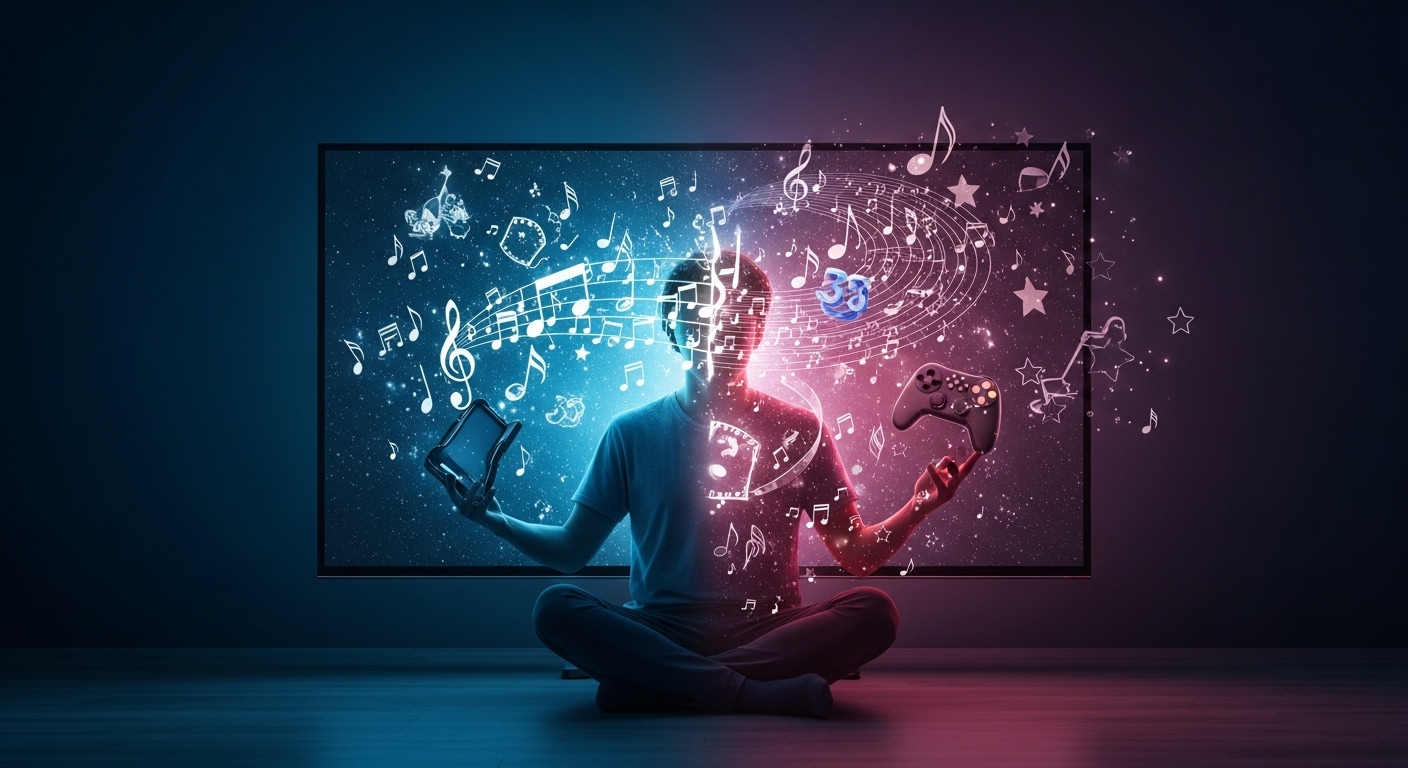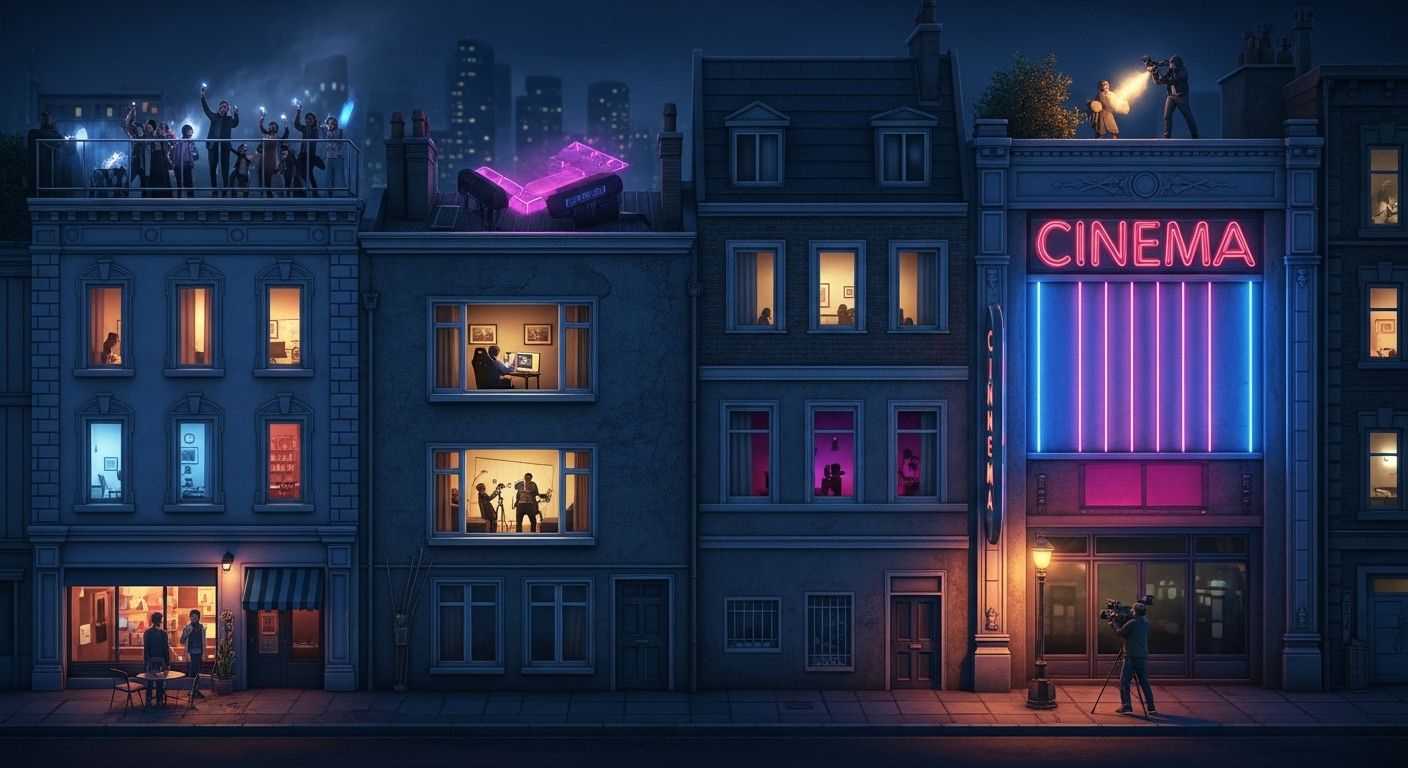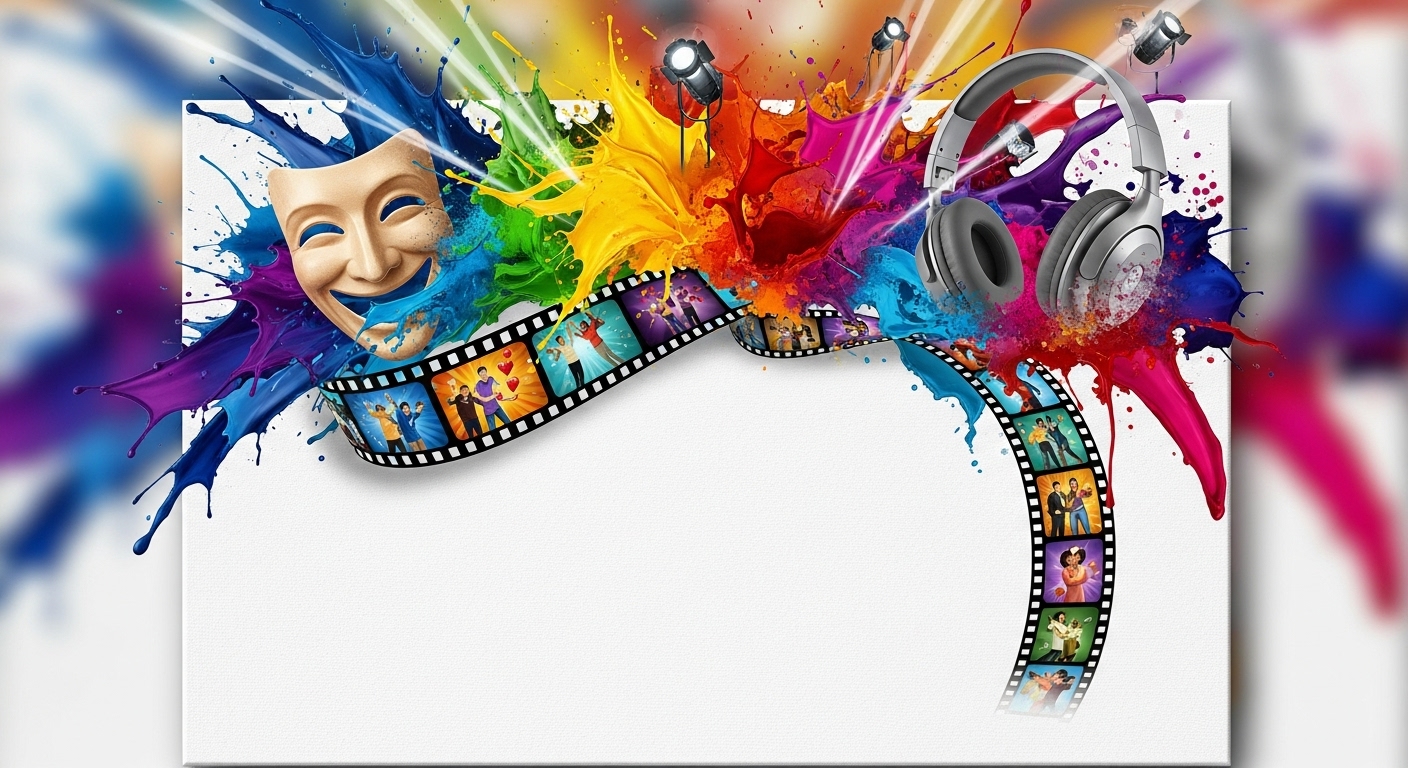Entertainment has always been a cornerstone of human culture. From the earliest storytelling traditions around a campfire to today’s immersive cinematic universes, humans have continually sought ways to engage, escape, and express themselves. In the modern era, entertainment is more diverse than ever, spanning movies, television, music, gaming, live performances, and digital content. Each of these mediums has evolved dramatically over the years, reflecting shifts in technology, society, and consumer preferences.
The Magic of Cinema
Movies have long been considered one of the most influential forms of entertainment. Cinema transports audiences into new worlds, allowing them to experience stories from the comfort of a theater or, more recently, their living rooms. The evolution of filmmaking has been remarkable—from silent films in black and white to today’s high-definition, CGI-laden blockbusters that push the boundaries of imagination.
The golden age of Hollywood introduced iconic stars and groundbreaking directors who shaped the art of storytelling on screen. Names like Alfred Hitchcock, Audrey Hepburn, and James Stewart became synonymous with cinematic excellence. Their work not only entertained but also influenced culture and society, highlighting the power of films to communicate ideas and emotions.
In the modern era, blockbuster franchises dominate the box office, capturing the attention of millions worldwide. Superhero sagas, epic fantasy adventures, and science fiction thrillers have created dedicated fan bases and cultural phenomena. However, independent films continue to provide fresh perspectives and unique narratives, proving that cinema’s charm lies not just in spectacle but in its ability to tell compelling human stories.
Television: The Small Screen Revolution
Television has undergone a transformation almost as dramatic as cinema. In the past, TV shows were limited in number and often dictated by strict broadcasting schedules. Families would gather around a single screen to watch their favorite programs, and certain shows became cultural touchstones. Classic sitcoms and drama series not only entertained but also reflected societal norms and challenges of their time.
With the advent of cable television, the range of content expanded exponentially. Channels dedicated to specific genres, from news to sports to reality shows, gave viewers unprecedented choice. Reality television emerged as a dominant force, providing both unscripted drama and real-life entertainment. Shows focusing on competitions, lifestyle, and talent discovery captivated audiences, blurring the line between real life and entertainment.
The introduction of streaming services revolutionized how audiences consume content. Platforms now offer vast libraries of movies and series that can be accessed anytime, anywhere. Binge-watching became a cultural phenomenon, changing the pace and expectations of storytelling. High-quality original series from streaming platforms are now competing with traditional networks, often providing innovative narratives and diverse representation that appeal to global audiences.
Music: The Soundtrack of Life
Music is perhaps the most universal form of entertainment. It has the power to evoke emotions, create memories, and unite people across cultures. Over the decades, the music industry has evolved from vinyl records to cassette tapes, CDs, and now digital streaming. Each technological shift has changed not only how music is consumed but also how it is created and marketed.
Different genres have risen and fallen in popularity over time, reflecting societal changes and cultural trends. Jazz, rock, hip-hop, pop, electronic, and indie music all have unique histories and fan bases. Iconic artists such as The Beatles, Michael Jackson, Madonna, and Beyoncé have left indelible marks on the music landscape, influencing generations of musicians and fans alike.
Live performances remain a crucial aspect of musical entertainment. Concerts, music festivals, and intimate gigs offer fans the chance to connect with artists in a way that recordings alone cannot replicate. With advances in stage technology, sound engineering, and visual effects, live music experiences have become increasingly immersive and memorable.
The digital era has also democratized music creation, allowing aspiring artists to produce and share their work without the backing of major labels. Social media platforms and music apps provide instant access to new talent and global audiences, reshaping the dynamics of fame and creativity in the music industry.
Gaming: Interactive Entertainment
Video games have grown from a niche hobby to a major industry rivaling cinema and music in revenue and cultural impact. Gaming offers a unique form of entertainment: interactive storytelling where players can influence outcomes and immerse themselves in dynamic worlds. Early arcade games and consoles paved the way for home entertainment, capturing the imaginations of players around the globe.
Modern gaming combines sophisticated graphics, intricate narratives, and online communities, creating experiences that are both social and immersive. Genres range from action and adventure to simulation, strategy, and role-playing games. Competitive gaming, or esports, has transformed gaming into a spectator sport, attracting millions of viewers and creating professional careers for players worldwide.
Mobile gaming has further expanded the reach of interactive entertainment. Smartphones and tablets have made gaming accessible to almost anyone, anytime, breaking down barriers and introducing casual players to virtual experiences previously limited to dedicated consoles.
The Rise of Digital Content Creators
The digital age has given rise to a new kind of entertainer: the content creator. Platforms like video-sharing apps, social media networks, and live-streaming services have enabled individuals to reach millions without traditional media channels. From comedic sketches and DIY tutorials to commentary and lifestyle vlogs, digital creators offer a wide array of entertainment that is highly personal and directly engaging.
Content creators thrive on interactivity, often responding to comments, collaborating with fans, and adapting their content to audience preferences. This direct connection fosters a sense of community and loyalty, creating entertainment ecosystems that are constantly evolving.
Influencers and content creators have also transformed marketing and brand engagement. Their ability to merge entertainment with promotion has redefined advertising strategies and the relationship between consumers and media.
The Globalization of Entertainment
Entertainment today is a global phenomenon. Audiences have access to content from around the world, breaking down cultural and linguistic barriers. International films, music, and gaming experiences are now more accessible than ever, allowing cross-cultural exchange and appreciation.
Streaming platforms often feature multilingual options and subtitles, ensuring that regional content can reach a worldwide audience. This has led to the rise of global hits from countries previously considered niche markets, demonstrating that compelling storytelling and creativity resonate universally.
Globalization has also influenced collaborations, with artists, filmmakers, and creators from different parts of the world joining forces to produce hybrid forms of entertainment that blend cultures, styles, and genres. This cultural cross-pollination enriches the entertainment landscape and fosters innovation.
The Psychology of Entertainment
Entertainment is more than just a pastime; it has profound psychological and social effects. People seek entertainment for various reasons: to relax, escape reality, stimulate imagination, or connect with others. Watching a thrilling movie, listening to uplifting music, or engaging in a video game can trigger emotional responses, release stress, and provide a sense of fulfillment.
Shared entertainment experiences, such as attending a concert or watching a popular TV series, also foster social bonding. Fans often form communities around common interests, discussing plot twists, characters, or performances. These interactions strengthen social ties and create a sense of belonging.
Entertainment can also be educational and thought-provoking. Documentaries, historical dramas, and informative content provide knowledge while engaging audiences emotionally, proving that entertainment can inspire curiosity and learning in addition to pleasure.
The Future of Entertainment
The future of entertainment promises even more innovation and immersion. Emerging technologies such as virtual reality (VR), augmented reality (AR), and artificial intelligence (AI) are reshaping how content is created and consumed. VR and AR offer fully immersive experiences that blur the line between reality and fantasy, while AI assists in content personalization and creative production.
Interactive experiences are likely to become more prevalent, allowing audiences to participate actively in storytelling, music creation, and even live performances. The integration of artificial intelligence in gaming, filmmaking, and music production could lead to entirely new genres and formats.
Sustainability and inclusivity are also becoming central to entertainment. Creators are increasingly mindful of environmental impacts, representation, and accessibility, ensuring that entertainment is not only engaging but also responsible and inclusive.
Conclusion: Entertainment as a Reflection of Humanity
Entertainment is a mirror reflecting human creativity, culture, and values. It evolves with society, technology, and audience expectations, continuously offering new ways to engage, inspire, and connect. Whether through cinema, television, music, gaming, or digital content, entertainment remains a vital part of human life, enriching experiences and shaping cultural narratives.
The journey of entertainment is far from over. With technological advancements, global collaboration, and creative innovation, the possibilities are endless. One thing is certain: as long as humans seek stories, laughter, music, and connection, entertainment will continue to thrive, adapt, and inspire generations to come.



